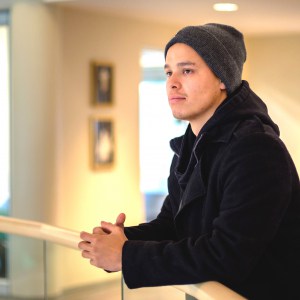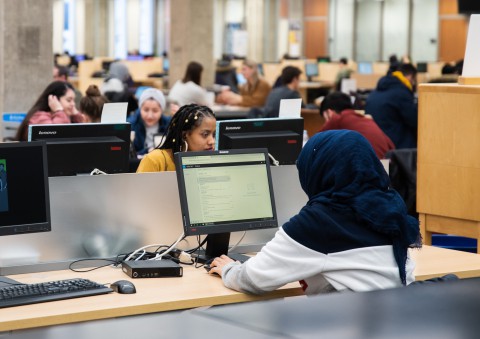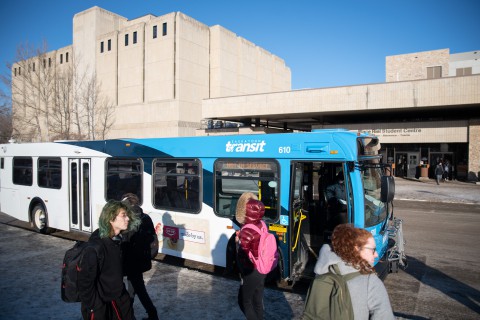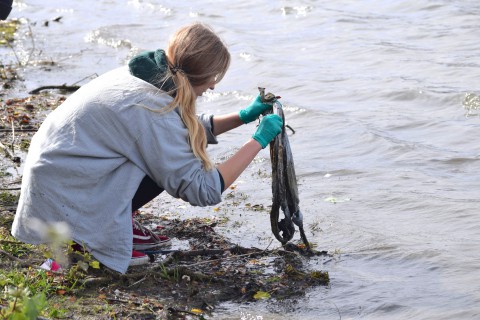With the start of the winter semester, the University of Saskatchewan Students’ Union executive has just under four months to complete their platform promises. So the Sheaf checked in with your student leaders to see what progress they have made on their electoral platforms.
Campaign promises:
An assessment of the USSU, increased student engagement and providing a holistic approach to mental-health services.
On the USSU assessment:
“I was planning to show more transparency, but what it turned into was engaging students more for USSU. I didn’t know that much about it, so I was kind of coming into it like, ‘Hey, we need to be more transparent.’ But then, I realized that we have a budget on the USSU page, and we have our events going on [the website].”
On student engagement:
“I book an hour off every day to literally just walk around campus and talk to students. I’ve been reaching out to the Indigenous community as well as trying to get out to engineering. I meet a lot of new people every day, and that is what I learned to really love about this job. It makes the office work a little more bearable.”

On a holistic mental-health plan:
“So my plan was to bring in an Elder to help with one of the many steps to the university’s plan, which is reconciliation and Indigenization, but also bring an Elder in to bring that other perspective of learning within that realm, which is mental health. I thought bringing in an Elder with storytelling, but also experience, maybe even guidance — this could all help with mental health.”
Campaign promises:
Increased student engagement, promoting campus scholarships and improving the student experience through more experiential-learning opportunities and open textbooks.
On increased student engagement:
“I organized Face-to-Face with different college buildings, so we would get to talk to all of the students that maybe aren’t as familiar with the USSU. We visited most of the colleges, but we have a few more this semester. It’s been really good because we have been able to go out to the different colleges and hear what they are talking about and what their concerns are.
“It was interesting because we went to buildings like the Vet Med Building, and even in engineering, the students were surprised to see us. They had never really seen the executive there before.”

On promoting scholarships:
“In some ways, it’s been hard… I have been promoting scholarships at Face-to-Face, and I’ve been talking with students. After I was elected, I met with the folks from [Student Finance and Awards] to hear about some of the issues they are working with.
“So I am working with them to make the scholarships better. There are constraints on doing the best that I can. But that has been something that hasn’t exactly gone as well as I had thought before I came into this position.”
On bettering students’ academic experiences:
“I talked before that I wanted access to more open-educational resources… One thing that I didn’t plan on before I ran [is that] I am really advocating for the university to create a guideline document that would mitigate some of the problems that arise from online homework systems.
“I’ve been talking with the provincial government… I’ve met with both the [Minister of Advanced Education], Tina Beaudry-Mellor, as well as the Critic for Advanced Education, Carla Beck, because there’s the possibility to get some provincial legislation about that.”
Campaign promises:
Training student groups, consultation with the city for the Bus Rapid Transit system and working through the USSU budget.
On student-group training:
“I am currently doing some liability and governance training all throughout January… In the governance training, I basically built a document around Robert’s Rules of Order, which shows students how to conduct a proper meeting, how to take proper minutes, how to do some basic budgeting and also just how to prepare for your transitionary meetings.
“Alongside that, I am continuing the liability session that my predecessor had started… The liability session is just how to make sure students stay safe when you’re hosting events, how to get insurance and why you need to get insurance. It covers those things, and it tries to connect students to resources on campus — like [the] Bringing in the Bystander Training Workshop and other things — to try and increase student safety and reduce risk.”
On BRT-system talks:
“I’ll be upfront with you: it seems that the BRT system — the implementation of it — has hit somewhat of a lag with the city, from where my perspective is, particularly with the Broadway business community.
“Additionally, in the transit portfolio, I’ve started working closer with the bus riders of Saskatoon to try to build some kind of connections there and have some more meetings with [Saskatoon Transit] to see where things were changing along. That’s kind of where the transit portfolio fits.”

On USSU finances:
“Throughout the months of January and February, we will be looking at the budget and preparing for next year, and that will be obviously be presented to council and to the university — all of our members — to make sure that they are A-okay with it.
“Additionally, one of the things I’ve been really promoting to council and to our members by word-of-mouth, and at University Student Council, is that accountabilities happen each month, and students are encouraged to come out and see how the USSU is spending their money.”
Campaign promises:
Improving student wellness, increasing community involvement with groups like the International Student and Study Abroad Centre and emphasizing sustainability.
On student wellness:
“I think all the other departments and other schools are doing a good job at it. I’m always here as an advocate, but all my events that I have put on this year are just little bits and pieces of self-care and different crafts that are catered towards better wellness. It’s not like just one event.”
On partnering with groups like ISSAC:
“I’m still involved with them. I always give them a poster when I have an event just so that they are in the loop with it, and they keep me in the loop. We have Global Village coming up in March, which I’m excited [about]. I did work in ISSAC last year, so I got the connections there and just continued open communication.”

On sustainability:
“River Clean Up was something I mentioned in my platform. That went really well in the beginning of September thanks to the Office of Sustainability and the Environment and Bioresources Students Association. Hopefully, the next person in my position could continue on to make that a whole campus initiative.
“With biking, I realized once that there were already enough bike racks, but people just want to park them at the same place, so it seems like we don’t have enough.”
—
Rebecca Tweidt
Photos: Riley Deacon / Photo Editor
Leave a Reply